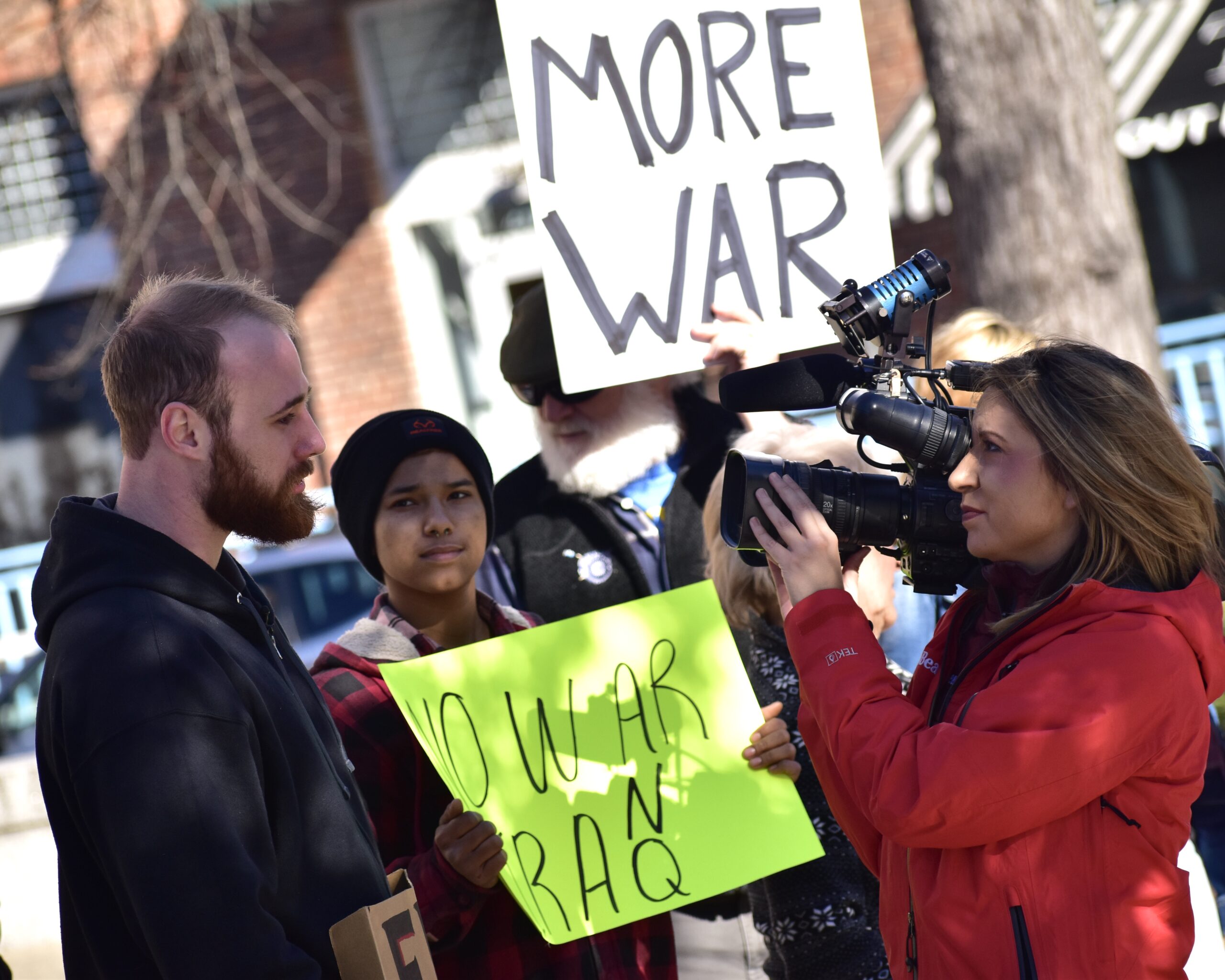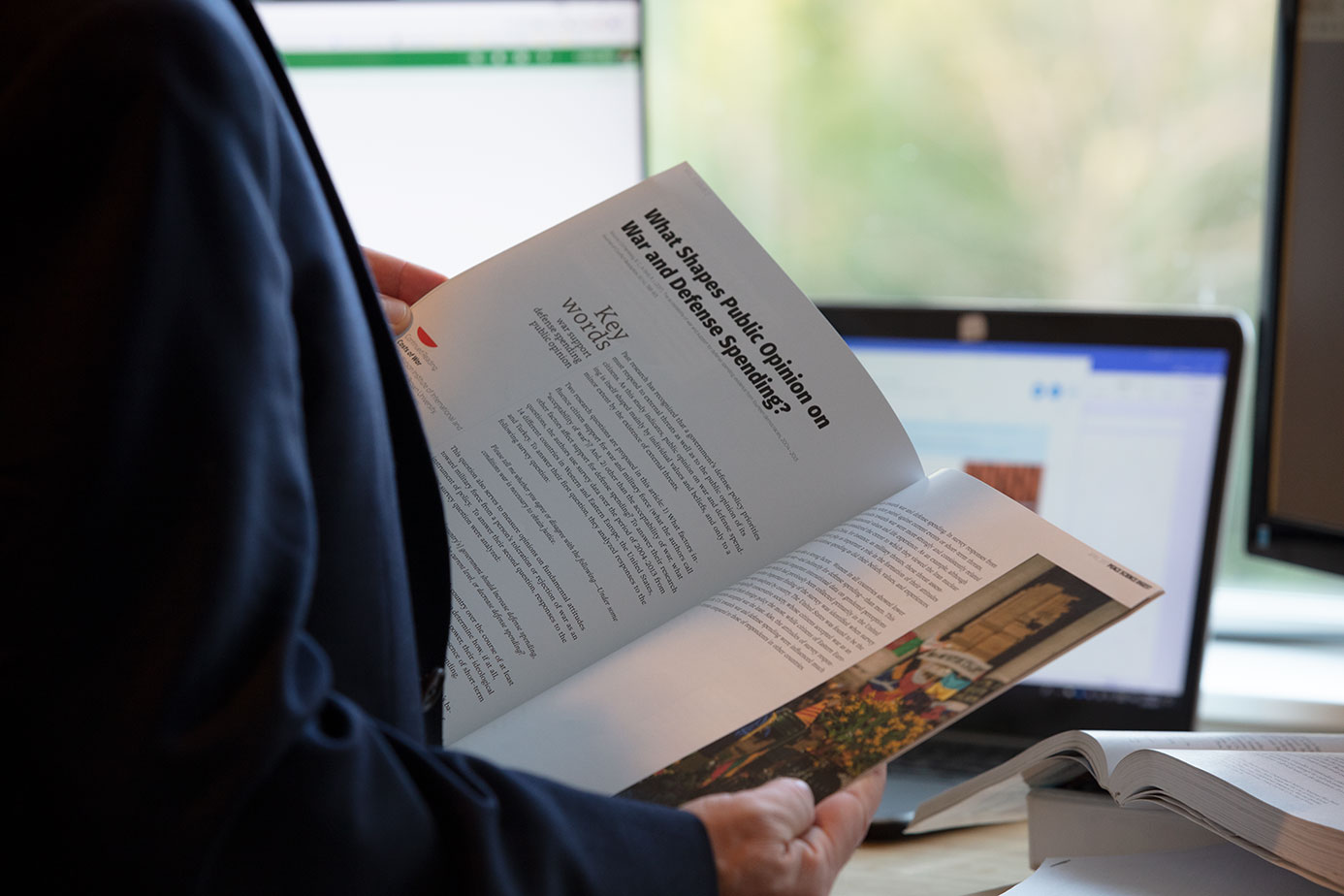Nonviolent Resistance in Indigenous Communities
Indigenous communities have a long history of successful nonviolent resistance. The Indigenous Environment Network announces protest at US Bank Stadium on the eve of the Super Bowl.
War Does Not Help The Economy
A study of six major U.S. wars found the costs of war to negatively affect the national economy, taxes, debt, jobs, investment, and inflation.
Volume 2, Issue 6
In this issue of the Peace Science Digest, you will find research highlighting the negative effects of military spending on a country’s long-term economic growth—contrary to many beliefs, war is not good for the economy. Next, we look at how ad-hoc military intervention increases the likelihood of retaliatory terror attacks, showing how current military strategies are actually making us less secure. We then turn to the role of social media in violent conflict, and how this new age of communication is changing how conflicts are conducted and how conflict actors communicate. In the fourth analysis, we look at how political leaders consider initiating conflicts abroad to distract from domestic problems. Finally, we look at Peace Journalism at a contribution aimed at making Peace Journalism more relevant.

Peace Journalism Done Right?
Peace journalism must adapt coverage to the stages of conflict in order to be relevant, and can have long-term effects through consistent peace framing.

The House Is On Fire, Should We Go To War?
Diversionary conflicts during domestic unrest are more likely to target more powerful states, showing no evidence that traditional ‘enemies’ are targeted.
How Social Media is Changing Conflict
In conflict, the speed and spread of information is increased by social media, and makes communication for individuals and groups easier.
Military Support Outside of International Coalitions Increase Risk of Terrorist Attack
Foreign military support in intrastate conflicts increases the risk of retaliatory terrorist attacks; weapons sales are the prominent contributing factor.

The Effects of Military Spending on Economic Growth
Military spending tends to have a negative impact on economic growth, and is especially detrimental to the economic growth of wealthier countries.
Special Issue: Nuclear Weapons
Inside this issue, we analyze research on the negligent dismissal of environmental and health considerations during the world’s race to develop nuclear weapons. The second analysis examines how the perceived legitimacy, power, and language of certain people can influence thinking and policy on nuclear disarmament efforts. The third analysis examines how gender and Western domination of knowledge shape nuclear discourse. In the fourth analysis, we highlight the importance of devaluing nuclear weapons not only as material, but as social objects. Finally, we examine empirical research that considers U.S. proximity and power as the main contributor to North Korea’s nuclear ambitions.
Too Close and Too Strong: U.S. Power and Proximity Contributing to North Korea’s Nuclear Ambitions
The U.S.’s overwhelming military capabilities and presence on the Korean Peninsula are primary motivators for North Korea’s nuclear program.
The Importance of Devaluing Nuclear Weapons
Nuclear weapons are “social objects” that gain value and meaning from social contexts, therefore, the value attached to them is subject to change.

